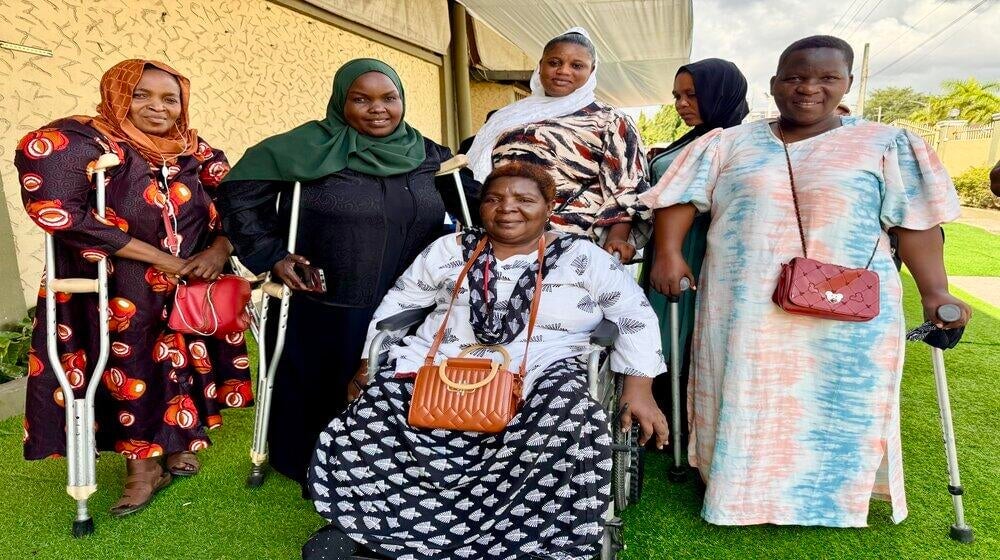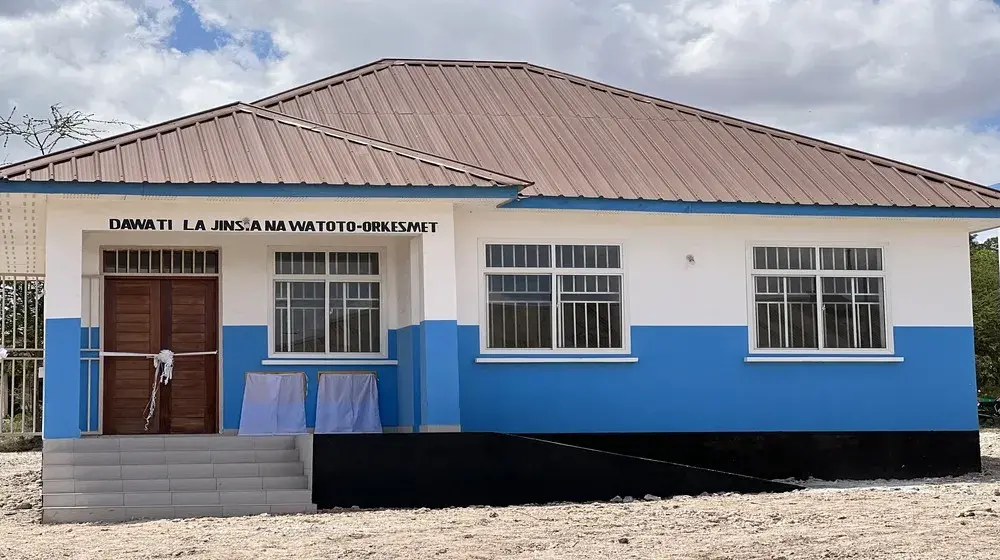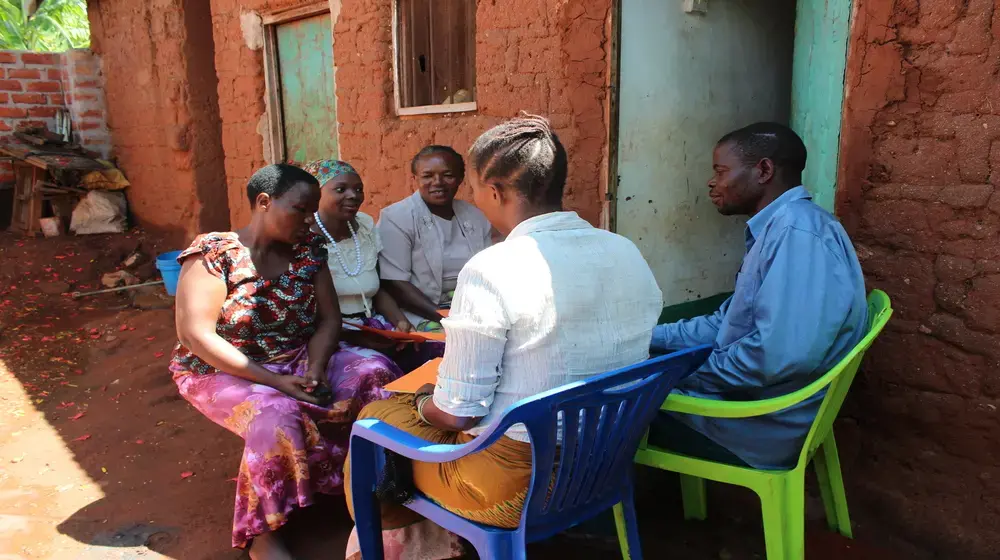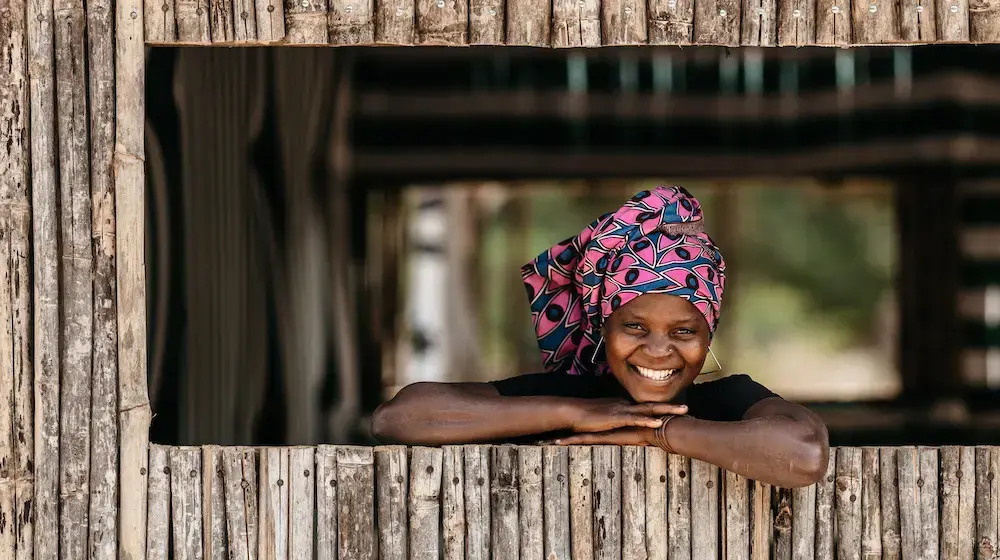The phrase "disability is not inability" increasingly resonates within Tanzania's development dialogues, resulting from strengthened political commitment and commendable strides made by the Government of Tanzania in recognizing the rights and potential of persons with disabilities. Yet, as indicated in the 2022 Population and Household Survey, persons with disabilities comprise an estimated 11.3 per cent of the population—a significant demographic whose full inclusion remains a goal to be achieved. Thus, while the Government of Tanzania has proactively championed the rights and inclusion of persons with disabilities through initiatives promoting accessibility, empowerment, and equal participation, achieving the development goals for an inclusive society set by the Government of Tanzania in Vision 2025, the Five Year Development Plan, and Zanzibar’s Development Plan requires accelerated efforts and strengthened partnerships to ensure no one is left behind.
Expanding Access to Decision-Making
Like many other nations globally, Tanzania strives to enhance the representation of persons with disabilities. However, the lack of support for capacity building and support for persons with disabilities to meaningfully engage in decision-making bodies and processes remain significant barriers to advancing the leadership of persons with disabilities at all levels of society.
To ensure that policies are informed by the diverse voices and experiences of all Tanzanians, including those with disabilities, the Government of Tanzania continue its efforts to ensure inclusive and equitable representation in local and national elections and other decision-making processes.
Promoting a Culture of Inclusion
Stigma and discrimination–compounded by intersecting inequalities related to gender, age, and ethnicity, remain pervasive challenges for persons with disabilities in Tanzania. Deep-seated cultural beliefs often marginalize them, making it difficult for them to access health, social and legal services, education, and employment opportunities. The advocacy efforts led by the Government of Tanzania and various organizations of persons with disabilities and supported by various development partners are critical in challenging these harmful narratives, but a sustained, widespread cultural shift is needed. Attitudes must change—not only in communities but also among policymakers, employers, and service providers.
The Gendered Impact on Persons with Disabilities
Recent research in Tanzania highlights the unique challenges faced by women and girls with disabilities, particularly concerning gender-based violence and sexual and reproductive health. They are disproportionately vulnerable to gender-based violence, and many are discouraged from making decisions about marriage and access to family planning, undermining their autonomy over their own bodies and reproductive choices.
The Government of Tanzania has made great strides by ensuring that the rights of persons with disabilities feature prominently in the recently launched National Plan of Action to End Violence against Women (2023/24-2028/29), which was developed with technical support from the UN family. Continued efforts to revise policies and normative guidance and translate these commitments into tangible improvements in the lives of women and girls with disabilities remain a priority.
Enhancing Access to Inclusive and Quality Healthcare
The Government of Tanzania, with support from Development Partners, has made promising progress in enhancing access to equitable healthcare coverage, with pilot efforts to train healthcare providers in disability-sensitive sexual and reproductive services and inclusive survivor-centred gender-based violence case management. Additionally, producing accessible information materials and enhancing access to assistive technologies for persons with disabilities are positive steps. However, access remains a challenge for many persons with disabilities, especially in rural areas. Inaccessible healthcare facilities, inadequately trained healthcare providers, stigma and discrimination, and cultural biases perpetuate this exclusion. Greater investment, commitment and political will are required to ensure that best practices from the pilot efforts are taken to scale, particularly in Tanzania’s underserved regions, where the need is most acute.
Data for Informed Decision-Making
Effective policy and planning rely on accurate and comprehensive data. Tanzania has made significant strides in institutionalizing disability data collection, such as the Persons with Disability Information Management System (PD-MIS) and Jumuishi, developed with technical support from the United Nations Population Fund (UNFPA). The Government of Tanzania showcased these efforts at this year's 57th Commission on Population Development in New York, which marked the 25th anniversary of the International Conference on Population Development (ICPD). The continued investment in analysis and strengthened utilization of data on disability for policy and planning are essential to ensure that interventions are tailored to the specific needs and requirements of persons with disabilities.
Empowerment and Economic Opportunity
Empowerment extends beyond service provision—it requires creating equitable opportunities and enabling environment where persons with disabilities acquire skills to fully participate in society. Vocational training programs, inclusive education initiatives, and accessible infrastructure are vital for unlocking the potential of Tanzania’s disabled population. Initiatives like Chaguo Langu Haki Yangu – My Right My Choice implemented by UNFPA, funded by the Government of Finland, have expanded access to education, vocational training, and essential services for women and youth with disabilities, addressing barriers to their empowerment. These measures benefit not just persons with disabilities but society as a whole, fostering innovation, economic growth, and social cohesion.
Partnering to Accelerate the Rights of Persons with Disabilities
To further advance the goal of an inclusive society with equitable access for persons with disabilities, the Government of Tanzania, development partners, and civil society must act decisively to scale up disability-inclusive initiatives. must collaborate to scale up disability-inclusive initiatives. This involves allocating dedicated funding for disability programs to ensure their sustainability and effectiveness, enforcing laws and policies that are in line with the United Nations Convention on the Rights of Persons with Disabilities (CRPD), to which Tanzania is a signatory, and prioritizing accessibility in all public projects. This includes healthcare facilities, schools, transportation systems, and social protection programs.
Most importantly, we must actively engage persons with disabilities in these efforts. They are not merely passive recipients of aid but active agents of change. By amplifying their voices and experiences, Tanzania can build a more inclusive society—one where disability is no longer a barrier to opportunity.
Tanzania has laid a strong foundation, but it is only the beginning. On this International Day of Persons with Disabilities, let us seize this moment to champion disability inclusion, not as a charity act but as a fundamental issue of justice and equity. As we are planning towards our collective Vision 2050, Tanzania’s path toward inclusive development is a shared responsibility—and it is one we cannot afford to postpone.
UNFPA confirms our commitment to continue its partnership with the Government of Tanzania and Organizations of Persons with Disabilities to build societies that are more inclusive for all – to the benefit of persons with disabilities and the benefit of all Tanzanians.
Author
Mark Bryan Schreiner,
UNFPA Representative,
United Republic of Tanzania





